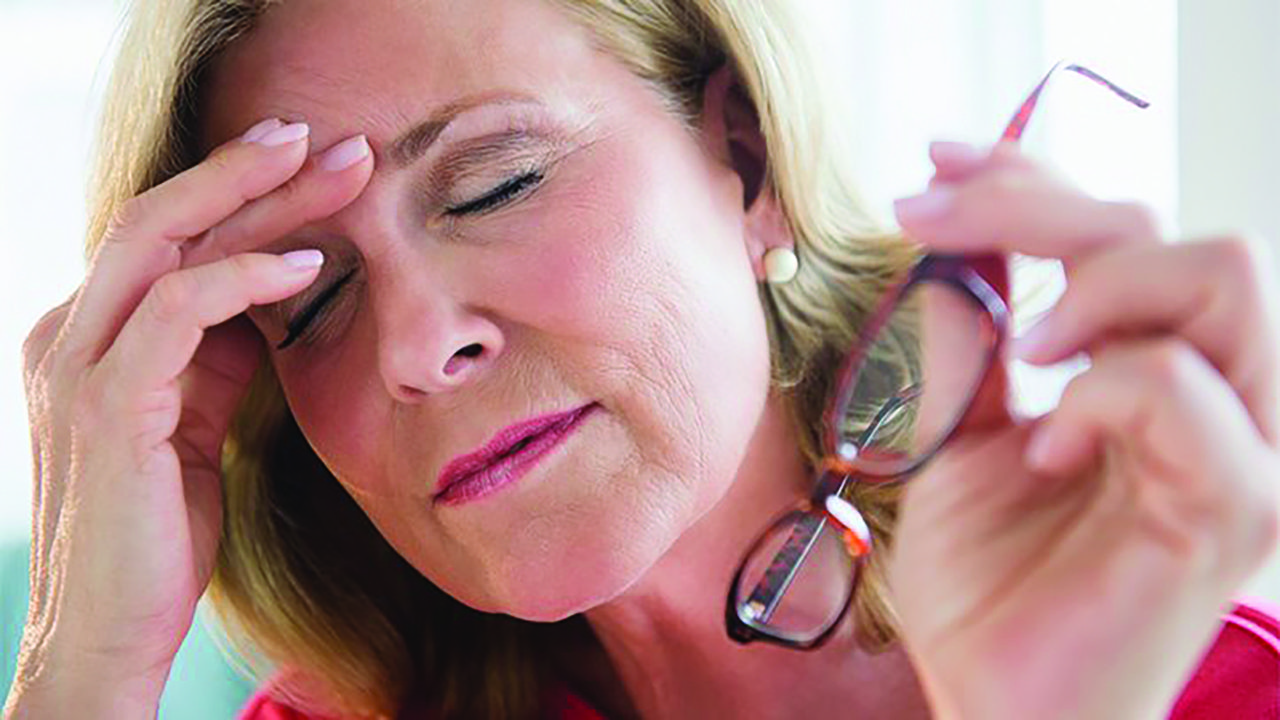 BY Zuleica Santiago, Resident Physician, Family Medicine, UTMB-Health
BY Zuleica Santiago, Resident Physician, Family Medicine, UTMB-Health
Menopause is a biological transition that all women go through; however, studies have found that the culture and lifestyle have influence upon the severity of the symptoms and the significance of this new change in a woman’s life. Research shows that Mayan women looked forward to this moment, since it provided newfound freedom and status. The idea that menopause is a disease rather than a transition desired and respected, influences on the symptomatology and therefore its management.
The symptomatology of menopause is due to the variable secretion of estrogen. These symptoms can be divided in vasomotor and non-vasomotor. Hot flashes and night sweats are considered vasomotor symptoms. Some of the non-vasomotor symptoms are vaginal dryness, weight gain, decreased libido, depression, and anxiety.
Estrogen takes active participation in bone health. While the level of the hormone decreases, the risk for fractures increases. One vital nutrient to offer the body is calcium. Calcium can be found naturally on dark leafy vegetables. Similarly, in almonds, flax seed, sardines, etc. Calcium’s absorption depends on vitamin D, adding to the dietary regimen, eggs, fish, mushroom, or vitamin D supplements is essential.
Estrogen serves as a cardiac protector, increasing levels of high-density lipoprotein (HDL/good cholesterol) and decreasing levels of low-density lipoprotein (LDL/bad cholesterol). Fiber has been well studied in its role to decrease LDL levels, improve insulin resistance, decrease inflammation and protect against heart disease. High fiber containing products include vegetables, beans, nuts and potato skins.
Likewise, numerous studies have shown that omega 3 fatty acids like eicosapentaenoic acid (EPA) and docosahexaenoic acid (DHA), reduce heart disease, by exerting anti-inflammatory properties. Good sources of omega 3 fatty acids are almonds, walnuts, Alaskan salmon, sardines and flax seed.
Several botanical supplements have been recommended, one of the most popular, due to its non-estrogenic and anti-inflammatory activity is black cohosh. It has been used since the 1980’s for the relief of hot flashes, anxiety, irritability, and depression. Additionally, several studies have shown that combining black cohosh with St. John’s wort improves the psychological and psychosomatic symptoms than either one given alone. Precautions need to be taken with St. John’s wort since it has numerous drug interactions.
An alternative herb recommended is Trifolium pretense (red clover). Studies show that it contains flavonoids and has phytoestrogenic properties, reducing the frequency and severity of hot flashes. Furthermore, it supports the maintenance of bone density and protects the cardiovascular and immune system.
Acupuncture has been scientifically proven to decrease the frequency and severity of hot flashes. It works principally on the vasomotor symptoms, but has also been effective ameliorating other menopausal related symptoms, improving quality of life and increasing the sense of well-being. Another effective bioenergetic is Yoga; available research suggests that it has the greatest effect on the psychological symptoms of menopause; decreasing depression, fatigue, and anxiety.
Lifestyle changes that include at least 30 minutes of cardiovascular exercises at least five times per week, has been shown to protect against heart disease, diabetes, breast cancer, osteoporosis, and memory impairment. Following a Mediterranean diet that is rich in berries, nuts, vegetables, and whole grains and low in red meat and process carbohydrates, has been effective in reducing overall metabolic inflammation. Focusing on foods with high levels of L-arginine or adding 500mg daily has alleviated the vaginal dryness by enhancing NO production.
Menopause is a natural and normal part of the aging process, and each woman will have a different experience and consequently will approach it differently. There is not a specific therapy that will eliminate all of the symptoms or be as efficacious on every woman. That is why it is important to start with lifestyle modification and then add the rest. We need to be aware that menopause is inevitable, suffering its symptoms is not. For some women, menopause is a time of empowerment, freedom, growth, maturity, and self-awareness, this illustrates that filling the mind with powerful positive thoughts can make a change in physical symptoms.
Like Ralph Waldo Emerson once said
“The age of a woman doesn’t mean a thing. The best tunes are played on the oldest fiddles”.
Before starting any medicinal therapy, please consult with your physician. Even if they are considered natural supplements, they are still derived from herbs that have an effect in our body.
References:
Rakel, D. Managing menopausal symptoms. Integrative medicine. 2018; 55:550-559.Elsevier.
De leo V, Lanzetta D, Cazzavacca R, Morgante G. [Treatment of neurovegetative menopausal symptoms with a phytotherapeutic agent]. Minerva Ginecol. 1998;50(5):207-11.


